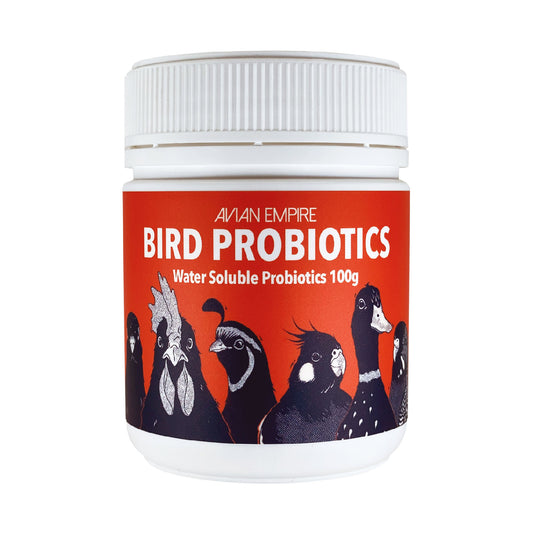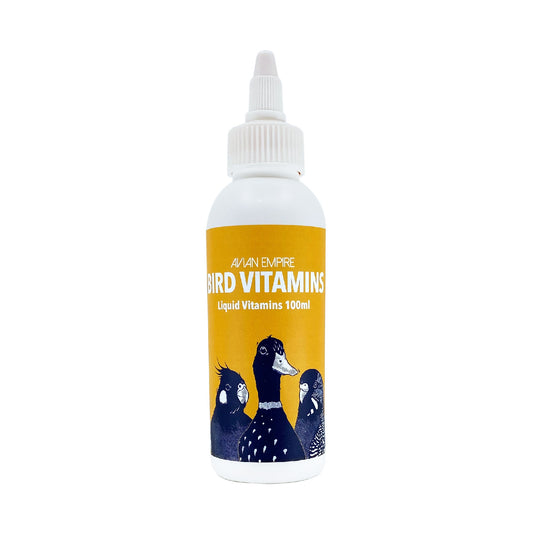

Pigeon Nutrition
Good nutrition is the foundation of a healthy, high-performing pigeon, whether kept as a pet, for racing, or showing. Pigeons are often fed grain-heavy diets, which can lack essential vitamins, minerals, and protein. This can lead to poor feather quality, reduced performance, and weaker immunity. While a quality grain mix remains the base for many, pellets formulated for pigeons are an excellent option if available, offering more complete and balanced nutrition. Their diet can also be supported with legumes, grit, fresh greens, and targeted supplements. Meeting their nutritional needs promotes better condition, recovery, breeding success, and long-term health.
Diet Breakdown
-

60–70% Quality Grain Mix
Grains form the foundation of most pigeon diets, making up 60–70% of daily intake. A high-quality mix provides essential energy, protein, and variety. Look for blends that include wheat, maize (cracked or whole), sorghum, barley (in small amounts), oats, peas, and lentils or other legumes. Peas and legumes are especially valuable for their protein content.
For racing pigeons or birds in heavy work, a higher-energy mix with added maize or sunflower seeds may be needed to meet increased demands. Always choose clean, fresh grains and adjust proportions based on the bird’s age, activity level, and season.
-

20 - 30% Formulated Pellet Diets
Pelleted diets are formulated to provide complete, balanced nutrition and help prevent the selective eating that often occurs with grain-based mixes. While not always easy to source, pigeon pellets are ideal. If unavailable, non-medicated chicken crumbles or parrot pellets can be used as a substitute, just be sure they contain appropriate levels of protein, vitamins, and minerals for pigeons.
-

5 - 10% Fresh Herbs & Vegetables
Fresh greens and vegetables are a great way to boost your pigeon’s intake of essential vitamins, minerals, and fibre. Offer options like silverbeet, spinach, dandelion greens, broccoli, grated carrot, and safe herbs such as parsley or basil a few times a week.
However, many pigeons, especially those raised on grain-only diets, may not take to greens right away. If your birds consistently refuse fresh vegetables, it’s worth supplementing with a high-quality avian multivitamin to help cover any nutritional gaps. Always introduce new foods slowly and monitor for interest or changes in droppings.
-

Grit (Free choice)
Pigeons need grit to help grind and digest whole grains in their gizzard, as they don't have teeth. Offer a mix of insoluble grit (e.g. granite) and soluble grit (e.g. oyster shell or canuda shell) in a separate dish, not mixed with food or scattered on the floor. Grit should be available free-choice at all times, allowing pigeons to take only what they need.
-

Water
Fresh, clean water should be accessible at all times. If using gravity-based water containers, these should be thoroughly cleaned daily, as bacteria and biofilm can accumulate quickly.
Supplements
Supplementation and Special Diet Needs.
Apple Cider Vinegar (ACV)
Apple cider vinegar can support digestive health in finches by helping maintain the natural acidity of the crop and promoting a balanced gut environment. It may also provide mild antimicrobial benefits, reducing the growth of harmful bacteria and yeast. Use raw, unpasteurised ACV with “the mother” and add 5 mL per litre of fresh drinking water.
Multivitamins
Even with a balanced diet, birds can miss important nutrients, especially fussy eaters. A water soluble multivitamin given 1–3 times per week helps fill nutritional gaps and support overall health.
Electrolytes
Electrolytes help pigeons stay hydrated and recover faster during periods of heat, stress, or exertion. On hot days or after racing, pigeons can quickly lose fluids and essential salts, which affects their performance and wellbeing. Adding an electrolyte supplement to their drinking water helps replace lost minerals, supports energy levels, and promotes quicker recovery. Use during extreme heat, transport, illness, or after heavy exercise for best results.
Probiotics
Probiotics help maintain a healthy balance of gut bacteria, which is essential for digestion, immunity, and overall well-being in pigeons. They’re especially beneficial after antibiotics, stress, racing, or illness, when the natural gut flora can be disrupted. Regular use supports better feed absorption, reduces the risk of digestive issues, and helps pigeons recover faster and stay in top condition.
Essential Oils (phytogenics)
Oregano, thymol, and cinnamaldehyde are powerful plant extracts known for their antimicrobial and gut-supportive properties. They help improve digestion, boost immunity, and reduce harmful bacteria—especially useful during stress, racing, or recovery. Products like The Good Stuff, Gallinat+ and Orego-Stim offer effective, natural alternatives to antibiotics and help maintain digestive balance and overall condition in pigeons.
Liver Support
Seed diets are high in fat and low in key nutrients, which can strain the liver over time. Support liver health by offering dark leafy greens, using bird-safe liver supplements like milk thistle, L-carnitine and providing a multivitamin rich in B vitamins and antioxidants.
PVM Powder, Mineral blocks and Calcium
Mineral bells and cuttlefish bones are great sources of calcium and essential trace minerals for budgies. They also help keep beaks healthy and trimmed. While not a complete supplement on their own, they’re a useful addition to support bone health, especially in egg-laying birds.
Tips for Pigeon Care
- Monitor food intake daily to spot changes in appetite or health.
- Offer fresh vegetables, herbs, fruit (in moderation) and water every day.
- Clean all dishes daily to maintain hygiene.
- Never assume a “no” to new food is final; persistence can help with picky eaters.
With the right dietary balance, your pigeon can not only live but truly thrive.
Pigeon Safe Foods
-

Fruit:
Apples (remove seeds)
Pears (remove seeds)
Blueberries
Kiwi Fruit
Grapes (seedless)
Oranges (small quantities due to acidity)
Strawberries
Mango
Papaya
Banana
Cherries (remove pits)
Watermelon (seedless)
Rockmelon (cantaloupe)
Honeydew Melon
Plums (remove pits)
Peaches (remove pits)
Apricots (remove pits)
Nectarines (remove pits)
Passionfruit
-

Vegetables:
Carrot (chopped or grated)
Sprouts
Spinach (in moderation)
Kale
Broccoli
Silverbeet
Pumpkin (cooked or raw, seeds removed)
Edamame beans
Snow pea shoots
Zucchini
Sweet Potato (cooked)
Bell Peppers (all colors)
Cucumber
Celery (remove stringy parts)
Beetroot (leaves and root in moderation)
Green Beans
Peas
-

Herbs:
Basil
Coriander (Cilantro)
Mint (any variety)
Thyme
Oregano
Sage
Dill
Rosemary
Lemon Balm
Chamomile
Chervil
Marjoram
Bee Balm
Tarragon
Fennel (leaves)
-

Weeds:
Dandelion (flowers and leaves)
Chickweed
Plantain
Purslane
Nasturtium (flowers and leaves)
Clover (moderation)
Shepherd's Purse
Mallow
Lamb's Quarters
Bittercress
Peppergrass
Borage (flowers and leaves)

Harmful foods
Avocado
Chocolate
Caffeine (coffee, tea, soda)
Alcohol
Onions
Garlic
Leeks
Apple seeds and fruit pits (e.g. cherry, peach, plum)
Salt Fatty or fried foods
Sugary foods
Xylitol (artificial sweetener)
Mouldy or spoiled food
Rhubarb
Tomato leaves and stems
Nightshade plants
Raw or dried beans
Mushrooms
Nutmeg
Raw Cassava
Processed meats
Dairy products (in large amounts)
Pellet Diets
-
BIRD PROBIOTICS - 100g
Regular price $29.50 NZDRegular price -
BIRD VITAMINS - 100ml
Regular price $28.50 NZDRegular price












